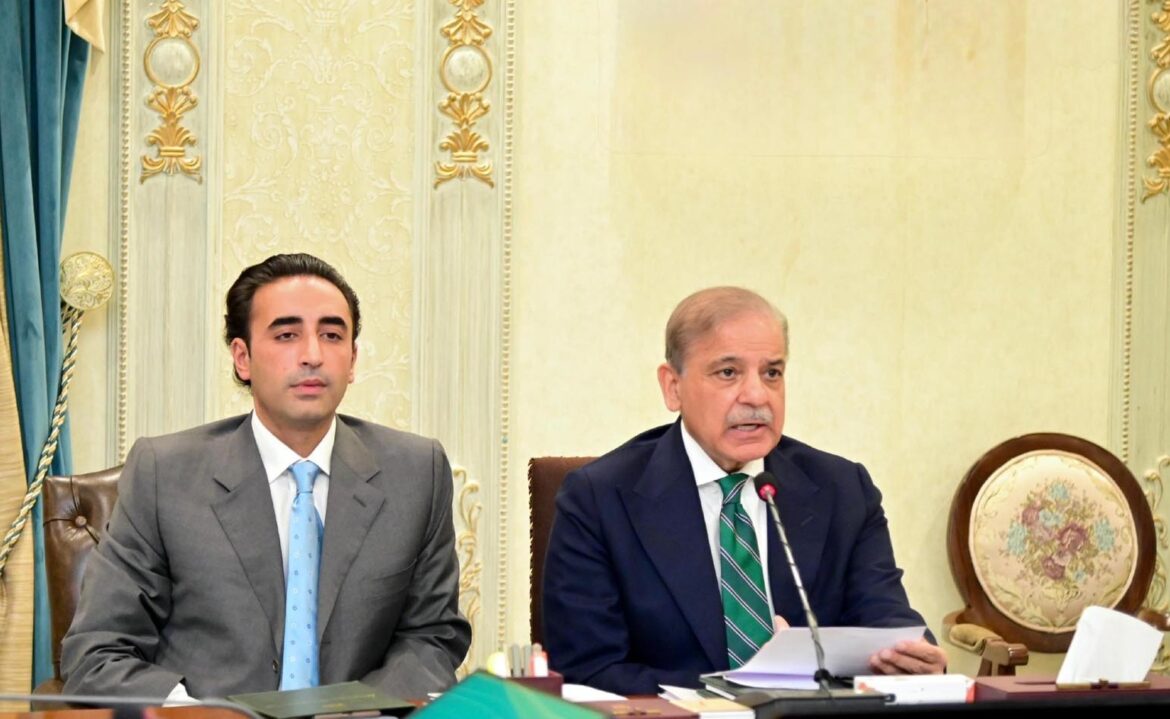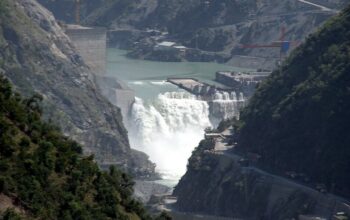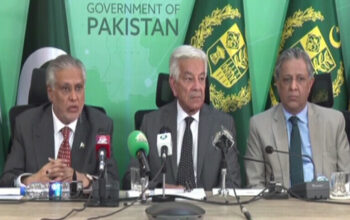By Staff Reporter
ISLAMABAD: Prime Minister Shehbaz Sharif announced on Thursday that the government will halt construction of new canals on the Indus River until a consensus is reached among the country’s provinces, following weeks of protests in southern Sindh province over fears of water shortages.
The decision marks a significant concession to the Pakistan Peoples Party (PPP), a key ally in Sharif’s ruling coalition, which had threatened to withdraw its support over the contentious $2 billion agricultural initiative. The project, launched in February, aimed to construct six new canals along the Indus to irrigate millions of acres of arid land in Cholistan desert.
But critics in Sindh, including civil society groups and nationalist parties, warned the plan would divert water from the downstream province, worsening shortages for farmers. Protesters blocked National Highway for nearly a week, demanding the project’s cancellation.
Addressing a press conference with PPP chairman Bilawal Bhutto-Zardari after a meeting with the party, Prime Minister Sharif said the two sides considered the country’s situation in detail and India’s aggression related to the Indus Water Treaty.
India closed its borders, scaled back diplomatic ties, and unilaterally suspended the Indus Water Treaty a day earlier, accusing Pakistan of involvement in an attack on tourists in Pahalgam, in occupied-Kashmir. The Indian government alleged “cross-border links” to the incident but provided no specific evidence. Islamabad denied such claims’#
“Today, we decided in the meeting between the PPP and PML-N with mutual agreement that until a decision is reached with mutual consensus in the CCI, no further canal will be constructed and the federal government has decided that there will be no further progress on canals without the consensus of opinion among provinces,” Sharif said.
The CCI, a constitutional body tasked with resolving interprovincial disputes, will convene on Friday, May 2, to formalize the pause and seek agreement among provinces, Sharif added.
The Indus River, Pakistan’s lifeline, is governed by a 1991 water-sharing accord that allocates resources among its four provinces. Sindh, positioned downstream, has long accused upstream Punjab — the political heartland of Sharif’s PML-N — of disproportionately extracting water through existing infrastructure.
The PPP, which secured the second-highest national votes in Pakistan’s disputed 2024 general elections, had warned it would exit the ruling coalition if the canal project proceeded. While the party holds the presidency and governorships in Punjab and Khyber Pakhtunkhwa, its influence rests largely in Sindh, where it frames the canal dispute as an existential threat to the province.
Bhutto-Zardari, a former foreign minister, thanked Sharif for addressing his concerns.
“We are not taking any decision today, but only affirming that without a consensus, new canals will not be made. I am looking forward to the CCI meeting.”
Sharif and Bhutto-Zardari agreed to form a committee comprising representatives from the federal government and all provinces to address the water issue. The committee will propose solutions to the country’s long-term agricultural and water management needs, ensuring alignment with the 1991 accord and 2018 policy.
“The federal government is engaging all provincial governments to chart out a long-term consensus roadmap for the development of agriculture policy and water management infrastructure across Pakistan,” the statement said. “Water is one of the most precious commodities and the makers of the Constitution recognized this, mandating all water disputes to be resolved amicably through consensus and concerns of any province shall be addressed through due diligence amongst all stakeholders.”
Copyright © 2021 Independent Pakistan | All rights reserved




